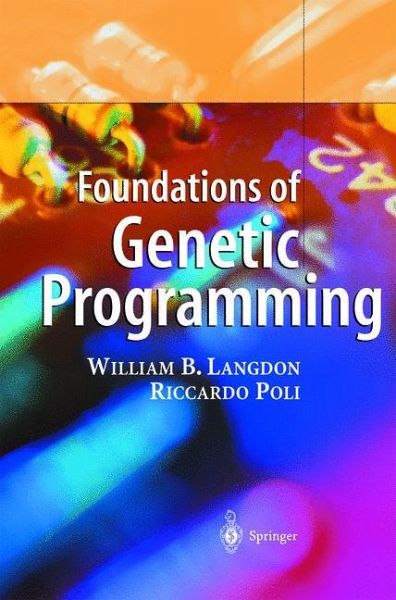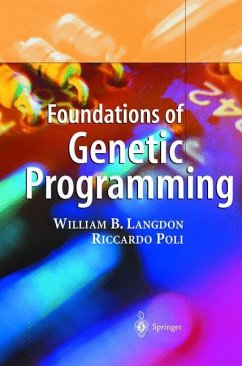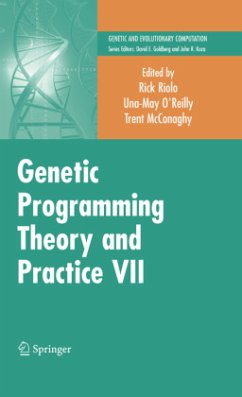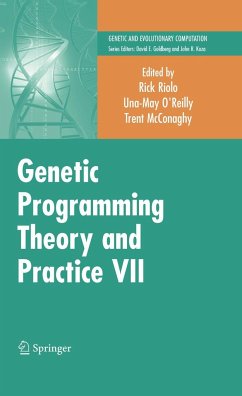
Foundations of Genetic Programming
Versandkostenfrei!
Versandfertig in 6-10 Tagen
76,99 €
inkl. MwSt.
Weitere Ausgaben:

PAYBACK Punkte
38 °P sammeln!
Genetic programming (GP), one of the most advanced forms of evolutionary computation, has been highly successful as a technique for getting computers to automatically solve problems without having to tell them explicitly how. Since its inceptions more than ten years ago, GP has been used to solve practical problems in a variety of application fields. Along with this ad-hoc engineering approaches interest increased in how and why GP works. This book provides a coherent consolidation of recent work on the theoretical foundations of GP. A concise introduction to GP and genetic algorithms (GA) is ...
Genetic programming (GP), one of the most advanced forms of evolutionary computation, has been highly successful as a technique for getting computers to automatically solve problems without having to tell them explicitly how. Since its inceptions more than ten years ago, GP has been used to solve practical problems in a variety of application fields. Along with this ad-hoc engineering approaches interest increased in how and why GP works. This book provides a coherent consolidation of recent work on the theoretical foundations of GP. A concise introduction to GP and genetic algorithms (GA) is followed by a discussion of fitness landscapes and other theoretical approaches to natural and artificial evolution. Having surveyed early approaches to GP theory it presents new exact schema analysis, showing that it applies to GP as well as to the simpler GAs. New results on the potentially infinite number of possible programs are followed by two chapters applying these new techniques.














